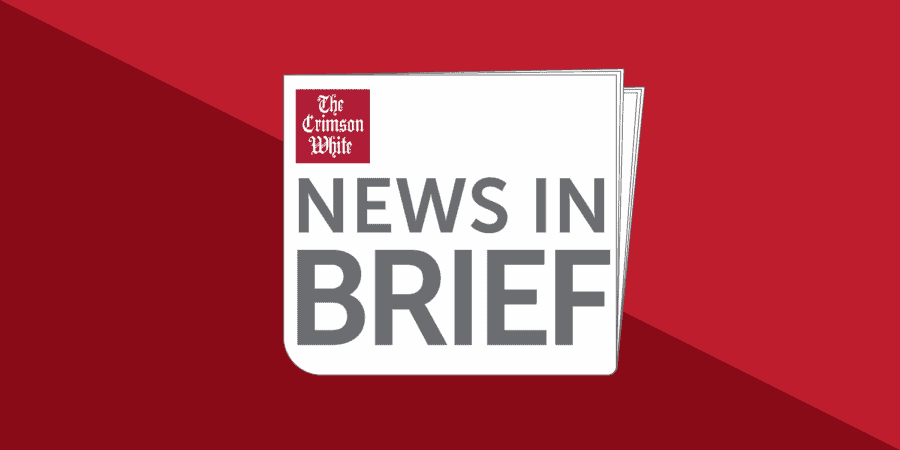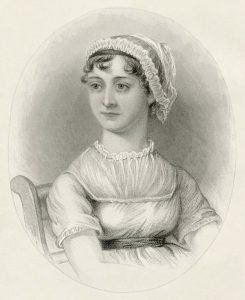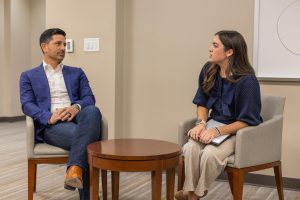Sudanese student informs attendees on country’s revolution
February 9, 2019
Peaceful protests have been taking place across Sudan every day since Dec. 19, but the Sudanese government has retaliated using methods that have resulted in nearly 50 civilian casualties.
Ilham Ali, a senior majoring in environmental engineering, is a dual citizen of Sudan with close ties to the events taking place. Ali gathered with fellow students in Gorgas Library on Feb. 6 as part of an event hosted by the Arabic Club called “#SudanUprising” to raise awareness and share her first-hand experience with the revolution.
The revolution began nearly two months ago in Atbara and Gedaref as a mass protest for a democratic government after 30 years under the rule of President Omar al-Bashir, a period of corruption and violence for many citizens. The presence of the movement has since been felt across the country.
While visiting family over winter break, Ali participated in three of these protests herself. She described the details of her participation, noting the face masks fellow protestors wore to protect themselves from the tear gas and sharing some of the common chants heard at these events, like “The bullet doesn’t kill, the silence [of the people] kills.”
“Fall, that is all,” Ali said, providing another translation of one of the most popular chants.
Ali shared news footage from the Washington Post along with the work of Muaz Osman and Maha AJ, two popular YouTubers from Sudan who each hold a strong online presence garnering hundreds of thousands of followers.
One of the videos Ali chose to share was Maha AJ’s “Salimmik- A Love Letter to Sudan.” AJ is a partner of Creators for Change. This particular video spoke out against the events taking place in her country while also reminding viewers of the immense talent and creativity of the Sudanese youth.
The revolution has sparked a creative movement in the midst of chaos. Posters, graphic design work and other art forms have been used to depict images of the protest and have spread rapidly online.
Ali had some of her own artwork on display.
“I mentioned a lot of the youth in Sudan, and the creative movement that’s going on right now, and I’m a part of that,” Ali said. “I like to contribute to it.”
Ali hung posters at the event from a social media project in which one Twitter user asked her followers six questions about the revolution. Several of Ali’s responses were included in the final product. In one of these responses, she provides readers with specific resources for consistent, factual information.
“Since little is being covered in the international news media, follow great sources of news and information online on the Sudanese protests like @YousraElbagir and @bsonblast,” Ali wrote. “They both post timely and verified information on the Sudan Uprisings and also post in English, as well as some Arabic.”
Although social media platforms have played a critical role in the revolution’s success, its access has been restricted by the Sudanese government. This has suppressed the voices of many citizens and presented a barrier to the promotion and planning of protests.
“I wish [the revolution] would get more international media attention, and that people would be a little bit more aware of what’s going on because that’s one of the things that’s lacking in the revolution,” Ali said.
A similar sentiment was voiced by Patrick Tate, a first year graduate student studying political science.
“I’d been reading about Sudan in the news lately and noticed it hasn’t really been getting a lot of coverage in the most popular news,” Tate said. “I’ve been noticing that every day for the past few months, there has been a report about two more casualties, three more casualties.”
This was a thought repeatedly expressed by people in attendance, including Lauren Petrey, a senior majoring in biology, who serves as a co-president of the Arabic Club.
“I think it’s really important to bring light to issues, especially that are not shown in our media very often,” Petrey said.
The Arabic Club hosts similar events throughout the semester to discuss topics pertaining to the Arabic-speaking world, including matters of politics, culture and language.










